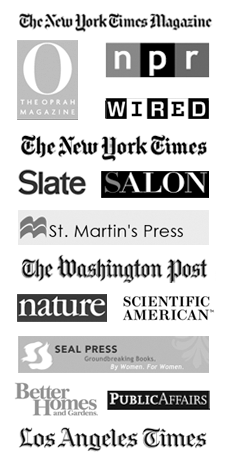What’s underneath your unproductive habits? This week and next, I’m going to give you an introduction to two of the most common “stuck syndromes” I see in my coaching practice.
2 Kinds of Stuck
Stuck Syndrome #1 – “Cruise Control”
An aspiring writer I’ll call “James” came to me for coaching a few years ago. He was intimidatingly smart. Fascinating to talk to. He was also stuck-as-hell when it came to taking his creative writing project seriously.
You see, in life, James did everything right.
He got to the top of his career by going to a great school, studying hard and taking the perfect internship. He worked for hours, and kept at it for years. By the time we met, James had all the trappings that come with “making it” in his chosen profession.
James didn’t really choose his profession, though. (He told me that had he thought it practical or possible when he was young, he might have taken more acting classes or allowed himself to explore writing for a living.)
Instead, James did what he thought he should. For all his adult life James built his reality by taking the next logical step. He continued what was expected — year after year. James’s situation is a perfect example of a life driven by cruise control.
As we worked together, James thought he might like to try writing a book one day. James got stuck before he could ever get started though, because he kept reacting to everything he thought his roles, duties and obligations required of him:
- at the office
- with his family
- in his free time
- on the page
Making time to write was scary for James. He might have to make more time for himself. He might fail, too.
We didn’t have to re-engineer James’s life to help him overcome his Cruise Control habit. We just had to elbow out some time and space for James to reclaim his creative voice and practice – systematically, consistently, incrementally.
After a year of working together, James says he’s enjoying his life again. He’s still hard at work, but he’s learned to take time for himself, too. I helped James create a consistent writing practice in just under 3 months. And by beginning to write regularly, James woke up to creative possibility. And happiness! He’s still busy and still successful in his day job. James uses some of his time for himself now, too. Four times a week, James sits down eagerly to work on the book project he conceived during our work together.
Ask Yourself:
Your version of Cruise Control can be subtle or dramatic, like James’s. Are you running on automatic? An easy question to pinpoint Cruise Control Syndrome is this: “How many times do I tell myself ‘I have to’ or ‘I should’ in a day?”
What to Do:
Shifting out of cruise control takes discipline, compassion for yourself, and a willingness to take incremental, calculated risks. To get started, study your calendar. Look for commitments you no longer enjoy and see if you can let go of one recurring obligation that drains your energy. You’ll be amazed at how much better you feel when you deliberately free up time to be you.
You, Too, Can Do What Matters Most.
Creative blocks and a life lacking in fire, passion or drive stem from something much greater than “I’m a wimp,” “I’m lazy” or “I just don’t know where to start.”
If you’ve been stuck for awhile, trust me: you’re going to be fine. You just need to wake up and take charge of your passion and productivity!
Join me for a free encore of my brand-new webinar on passionate productivity:
https://coachmarla.com//training/
It’s not too late to learn how to feel more alive, passionate and truly productive than you’ve been in years!
With love from your coach,



